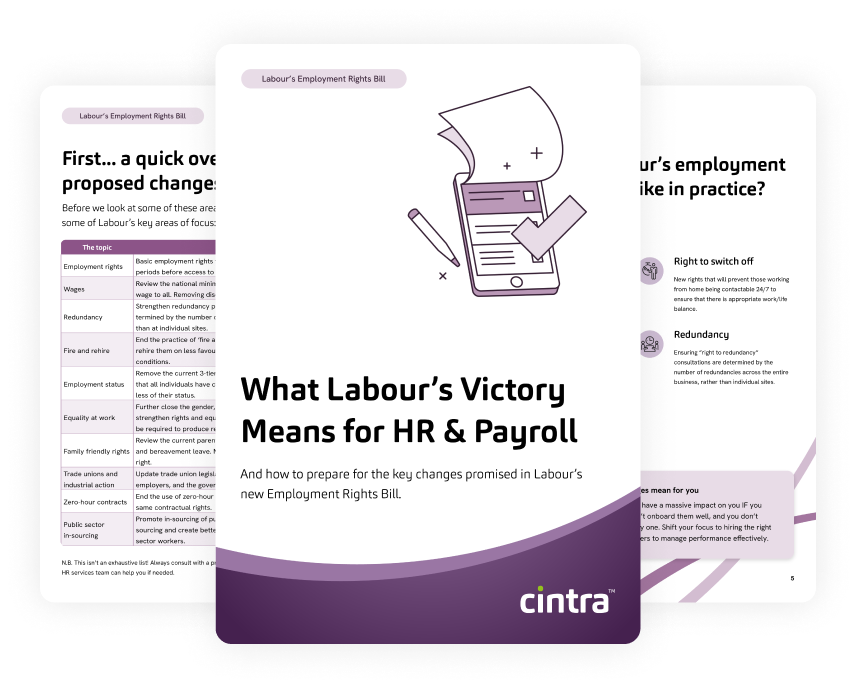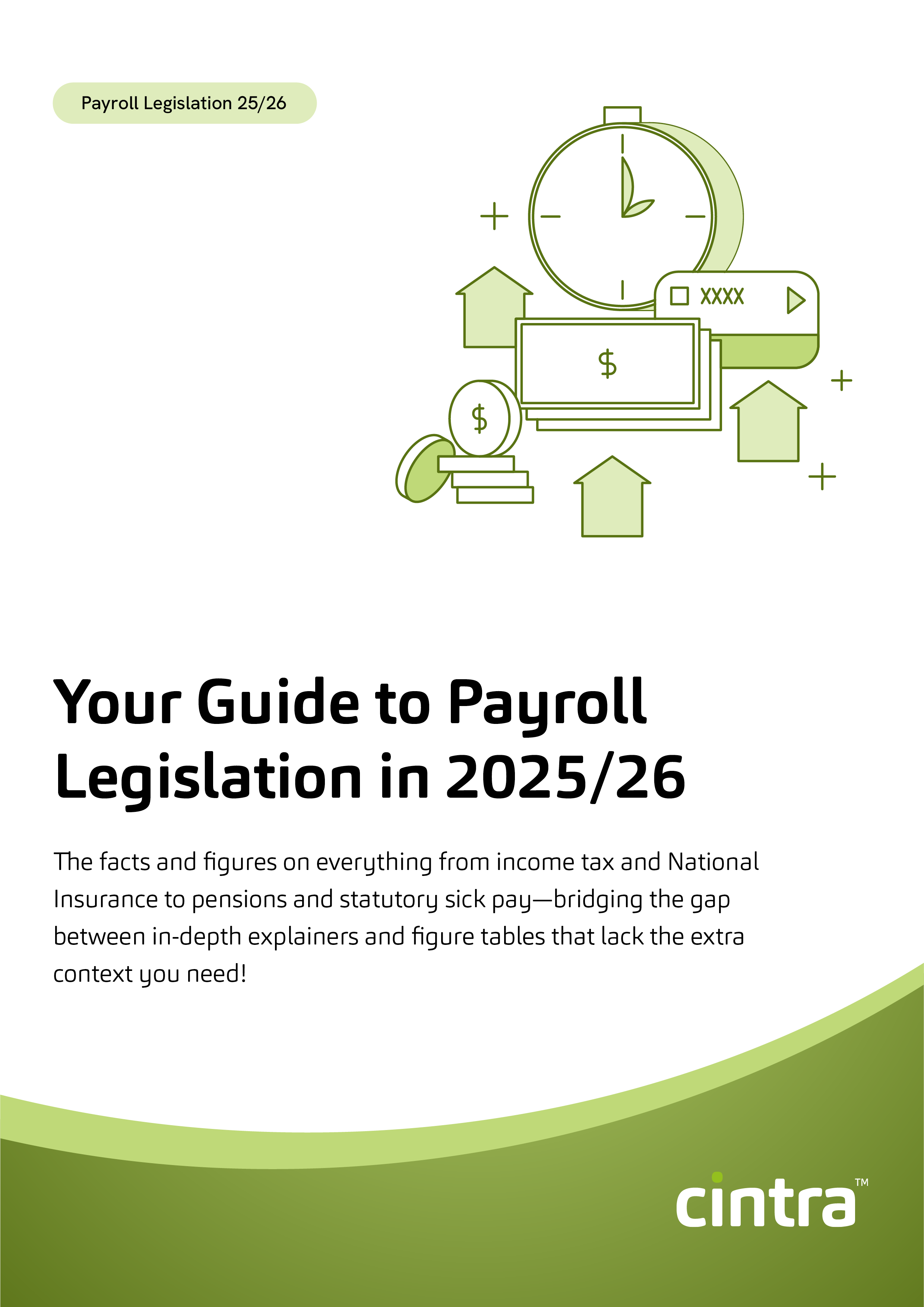Labour’s promise was to introduce a new Employment Rights Bill in their first 100 days (about 3 and a half months) in office—taking us to mid-October 2024. While that doesn’t mean the new bill will be effective by this date, it does mean that we can expect to see some fast-paced changes to workplace law.
With so many proposed changes, there’s a lot on the table right now. So, we’ll cover the highlights and the key promises that we believe will be the most impactful to the majority of organisations.
Labour’s proposed bill focuses very much on two things: improving employee rights from day one, and strengthening their rights with new and updated policies. Let’s look at how they plan to see that through.
Labour’s Employment Rights Bill
| The topic | The promise |
|---|---|
| Unfair dismissal | Removal of the 2-year qualifying period before an employee can bring an unfair dismissal case. |
| Sick pay | Removal of the 3-day qualifying period for Statutory Sick Pay (SSP), and removal of the Lower Earnings Limit (LEL) of £123 per week. |
| Genuine living wage | Review the national minimum wage structure so that it offers a real living wage to all, based on the cost of living. They also plan to remove discriminatory age bands, so all on minimum wage receive the same hourly pay. |
| Redundancy | Strengthen redundancy protection by mandating that consultations are determined by the number of people impacted across an entire business, rather than at individual sites. |
| Fire and rehire | End the practice of ‘fire and rehire’, where employers dismiss staff only to rehire them on less favourable terms such as reduced pay and terms and conditions. |
| Employment status | Remove the current 3-tier system and create a single status of “worker”, so that all individuals have consistent and protected employment rights regardless of their status. |
| Pay gap reporting | Like gender pay gap reporting requirements, organisations over 250 people will be required to report on pay gaps related to disability, ethnicity, and LGBTQ+. |
| Race Equality Act | Introducing a new Act to provide Black, Asian, and other minority employees with the right to equal pay and strengthen protections against dual discrimination across race, disability and gender. |
| Menopause Action Plan | Organisations over 250 people will be required to implement Menopause Action Plans and policies for supporting employees experiencing menopause. |
| Zero-hour contracts | End the use of zero-hour contracts that favour one-sided flexibility and make sure all workers receive the same contractual rights. |
| Flexible working | A shift from the “right to request flexible working” to flexible working being the default option from day one. |
| Right to switch off | New rights that will prevent those working from home being contactable 24/7 to ensure that there is appropriate work/life balance. |
| Pregnant women’s protection | Strengthen protection for pregnant women making it unlawful to dismiss a woman who is pregnant for six months after her return from maternity leave, protecting new mothers from unfair dismissal. |
| Paternity and parental leave | Making both paternity and parental leave available from day one, removing the qualifying period. |
Taking a closer look
Please know that this isn’t an exhaustive list of everything outlined in the Employment Rights Bill. The policies we’ve highlighted above are those more likely to have an impact on the masses. There are other policies, such as those targeted at the public sector or trade unions, that will also have a massive impact – so you should always consult with a professional for additional context and in-depth guidance!
To make things easier for you, we’ve included more details in our latest guide. It covers:
- More policies pledged
- The impact they can have on your organisation
- A self-assessment checklist
- A few things we recommend you review and implement now to get prepared.
Grab your copy here:

What Labour's Victory Means for HR & Payroll
Grab your accessible summary of guidance and insights on Labour's new Employment Rights Bill.
Download your guide!
Let the employment law experts help you prepare
Our HR and employment law experts are here to help guide you through the changes. Whether you need new policy templates to meet the new parental leave requirements, a national minimum wage audit, guidance through employee relations issues, or anything else; we’re here to make sure you’re fully compliant with any changes that happen in the Employment Rights Bill.
And with fast-paced changes expected soon, now is the time to plan and prepare.
Our outsourced HR services give you everything you need from an entire HR team, at a fraction of the cost. Get in touch to chat about what we can do to help.


